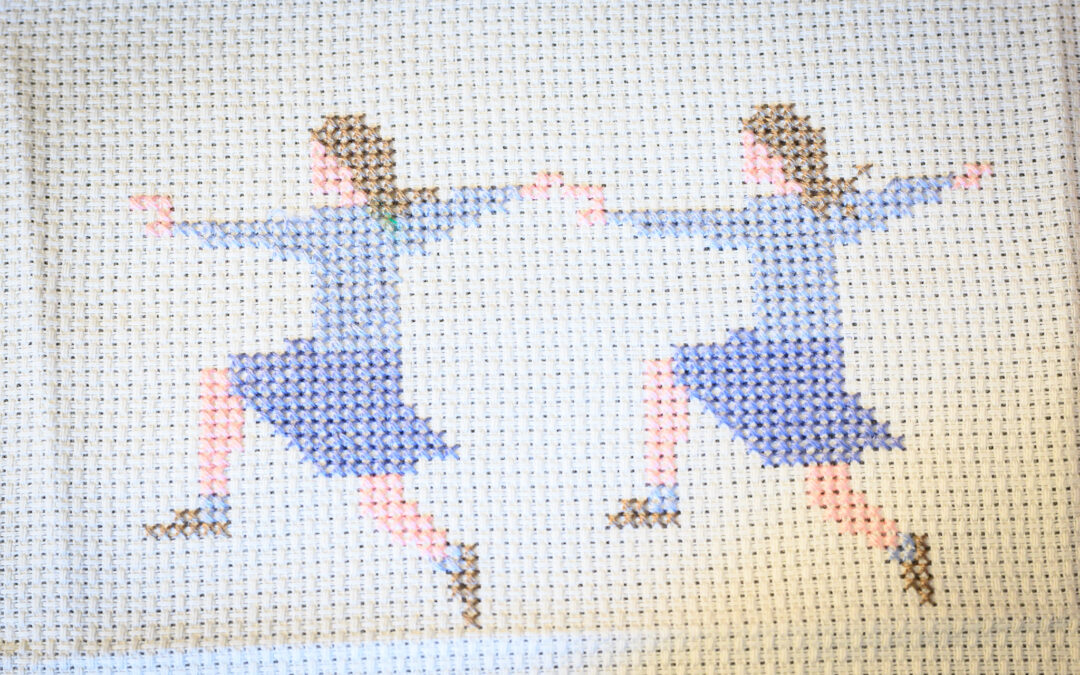In which I get down and dirty with the bedbugs.
“Why don’t we spend the summer working as Butlins Redcoats?” said a school friend in Walthamstow Hall, as we discussed this pressing question of how to spend our months of freedom from boarding school. “Lovely,” I responded enthusiastically.
So how on earth did I find myself on my own in a hospital kitchen, at 5.30 am on a July morning, cooking up piles of greasy eggs and bacon, and serving them to sleepy nurses, no older than myself and very puzzled by my classy accent?
My friend’s mother had felt that it was not appropriate for her daughter to go away to a Butlins holiday camp. She obtained for us both employment as domestics at the Shrewsbury County Hospital.
I looked forward to it, nevertheless. My friend, Sally, was legendary at school for her charisma, sophistication and wonderful social life, so I expected a few weeks of light domestic duties interspersed with tea parties, dances, and above all – young men.
It didn’t quite work out like that. For some reason, I have never been able to fathom why my friend’s mother decided I couldn’t stay with them, but would have to board in the hospital. I was quite hurt, as I had thought she liked me. Sally said, “I’d have been quite happy to share my room with you, but….”.
Consequently, not only did the hospital claw back most of my meagre wage in return for my board, but I was put on split shifts all the time. This timing, working mornings 5.30 am till midday, off in the afternoon, working again from 6-10 in the evening, was death to any social life. My friend worked the normal day shift. We hardly ever met.
Of course I was upset for a few days, but I soon began to realise that this, my first taste of adult freedom, was a wonderful training for medical school in the autumn. I was fit and young; quite able to cope with cooking breakfasts for the nurses and even the backbreaking scrubbing of floors. I was a constant source of interest to the patients and they to me. When I was supposed to be cleaning I was more likely to be chatting by someone’s bed, leaning on my broom in true music hall style, gossiping about lumps and bumps and life-threatening operations. I felt I was experiencing True Life at last!
The Ward Sisters were a tough bunch. They were hard on the nurses and particularly horrible to the auxiliaries – the ones who had the light duties I had imagined my own; dusting lockers, arranging flowers, wiping bums and carrying bedpans to and fro.
Thank goodness I hadn’t got that sort of job! We domestics were not directly under the medical hierarchy. Apart from a written rota saying where and what we were to do each day, nobody seemed to notice us. When the Sister on Surgical 3 found me eating food from the ward fridge, she turned a blind eye. When a pair of pinstriped legs trod up my newly washed corridor I slopped the bucket over the shiny shoes of a Consultant Physician. I glanced up at the angry pout under the moustache and dried off the shoes with my dirty rag, saying a perfunctory and hypocritical “sorry.”
In a few months, such Consultants and Sisters would hold my professional life in their hands and regard me as lower than the dust I left under the beds. For now, I was immune, and wow! Wasn’t that a gas!
Best of all, I spent a lot of my time with the older domestic cleaners. I didn’t have much in common with the girls of my own age, who probably thought me toffee-nosed because of my accent. The middle-aged women saw it differently. They evidently felt it was up to them to educate this naïve middle-class girl.
“Coming for a cuppa?” Mrs Bird would wheeze, fag dangling from her mouth. Her mate Mrs Bathhurst – did they even have first names? I’d never have presumed to use them – would make tea. The heavy white cups were always full to the brim with an evil dung-coloured brew, so thick I swear it clunked on the table as it spilt.
Then they would be off; giving me the low down on marryings and buryings, sexual shenanigans, child-care, husband-care, leavings and homecomings. They would reminisce about their – invariably horrendous – birth experiences and the vital organs cut out of long-dead relatives.
No self-pity. No quarter given. Births, deaths and hospital tea. All I needed to become a Doctor.


This is brilliant! I laughed out loud at the thought of that evil, dung-coloured brew, the drinking of which was good training for all those years working in the NHS.